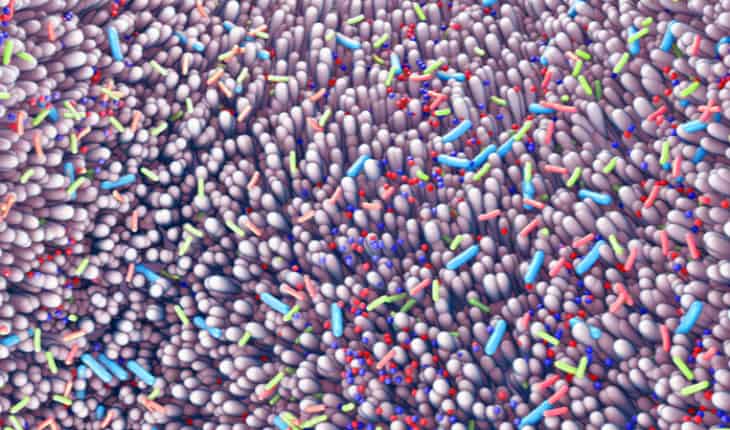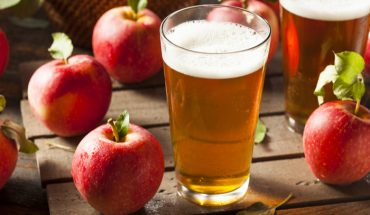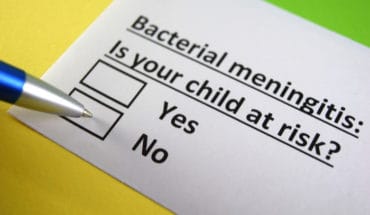Get to grips with gut health: Five tips for a fit and healthy year: As we head into the spring/summer season, our list of goals is always the same: plan fun activities, get in shape, reduce stress levels and live more healthily in general. Given that we were somewhat robbed
of our spring & summer in 2020, many of us are even more dedicated to achieving these goals in 2021 to capitalise on the most carefree and fun time of the year. Most of us don’t realise that if you really want to feel and look your best, you should get to know your gut health. The gut microorganisms are not just responsible for digestion – they also have a decisive influence on how we feel and our general wellbeing.
So, to help you look and feel fantastic as we head into summer, gut microbiome experts from biotech innovator BIOMES have collated their top tips on why knowing and strengthening your gut health is worthwhile for improving your overall health. The intestine is the number one immune organ in the body, and the scientists at BIOMES know a thing or two about intestinal health. They examine stool samples with the help of a modern biotechnological procedure known as DNA sequencing, which has revolutionised our ability to get to know our gut!
1. A healthy gut keeps you…in shape:
Instead of starting on the latest fad diet, why not try looking for answers within your own intestinal bacteria? Several scientific studies have proven how important they are for staying in shape. Intestinal bacteria have a decisive influence on our weight – both positively and negatively. Particularly important is the “wunderkind” among microorganisms, the “Akkermansia” bacterium. As well as preventing
weight gain and reducing total cholesterol in the blood, Akkermansia bacteria also boost the metabolism. Eating cranberries, cloves or pomegranates helps to increase the quantity of these bacteria in the intestine to promote a healthy weight. The sugar loving “Firmicutes” bacteria are ones to be wary of; the presence of too many of these in your gut causes cravings for sweets and fatty foods.
One reason for their presence is excessive snacking. So, if you ever feel a snack craving coming on, listen to your gut and reach for cranberries instead of chocolate.
2. A healthy gut makes you…immune:
For a long time, people assumed that the sole purpose of the intestine was digestion. Today we know that it is where 80% of our immune system is located. Harmful bacteria and germs can enter the body through food, meaning that the intestine is a real defence centre. The intestinal mucosa contains numerous lymph follicles that can recognise and fight pathogens. The gut’s own beneficial bacteria can also produce certain defensive substances such as lactic acid, which put an end to harmful invaders.
However, if your diet is consistently unhealthy you risk weakening this sophisticated system because the good bacteria are not getting the energy that they need and as such, are quite literally starved. The result: you get sick. To boost the good bacteria in your gut, we recommend eating foods such as sauerkraut, natural yoghurt, kefir, vegetables, and legumes.
3. A healthy intestine gives you…a healthy glow:
We like to say that the skin is a mirror to our inner self. Fundamentally if we are not healthy on the inside, it shows on the outside. Our skin is influenced by a complex interplay of hormones, our immune system, and numerous metabolic processes and we can influence all of this with our diet. In other words, what we eat affects our skin and its appearance. If our intestinal flora is in balance, we radiate this through glowing, healthy skin.
4. A healthy gut makes you…happy:
When we experience emotions such as fear or worry, we often feel their physical impact in our stomachs. However, these feelings can also affect the intestines. The reason for this is that the intestines are in permanent exchange with the emotional centre of our brain via the gut-brain axis.
This means that intestinal bacteria and the psyche influence each other. If our gut is doing well, it can absorb more nutrients from food and, as a result, it can let the brain know that we are doing well. Consequentially we produce more happiness hormones which keep us in a good mood. By this logic, the composition of our intestinal flora can also influence whether we experience conditions such as depression or anxiety.
5. An unhealthy gut keeps you…awake:
Everyone knows that when you are stressed, you do not sleep as well, but what role does the gut play in all this? The “sleep hormone” melatonin and the amino acid GABA influence our sleep-wake rhythm, and both are produced in the intestine as well as the brain. Studies have shown that an unfavourable imbalance in the intestine can contribute to a lower quality of sleep because melatonin and GABA are
not being produced in the right quantity. To combat this, lactic acid and bifidio bacteria (obtainable in probiotic form) can ensure a balanced intestinal flora and thus help eradicate sleepless nights.
THE EXPERT TIP
Dr. Paul Hammer, Systems Biologist and CEO of BIOMES recommends: “To actively strengthen the intestinal flora, it is advisable to eat lots of probiotic foods such as natural yoghurt, kefir, cheese, sauerkraut and kombucha. A short fasting period of three to seven days can also work wonders. During detox days, harmful substances that we carry inside us are eliminated via the intestines and other organs – this can be a real “wellness programme” for the entire organism. Afterwards, a plant-based diet and probiotics in the form of food supplements can bring the intestinal bacteria back into balance.
However, you should seek professional advice and take a gut health test before embarking on this journey so you can ascertain what is right for your own intestines. After all, each person’s microbiome is individual to themselves.”
Further information about the intestine, the microbiome and how it influences our health can be found at: https://biomes.world/en/my-health-my-life/.
- The da Vinci 5 Robot Is Set To Transform Bariatric Care: - 31st March 2025
- Beyond money: the hidden drivers fuelling child food insecurity - 31st March 2025
- Tobacco and Vapes Bill - 31st March 2025






